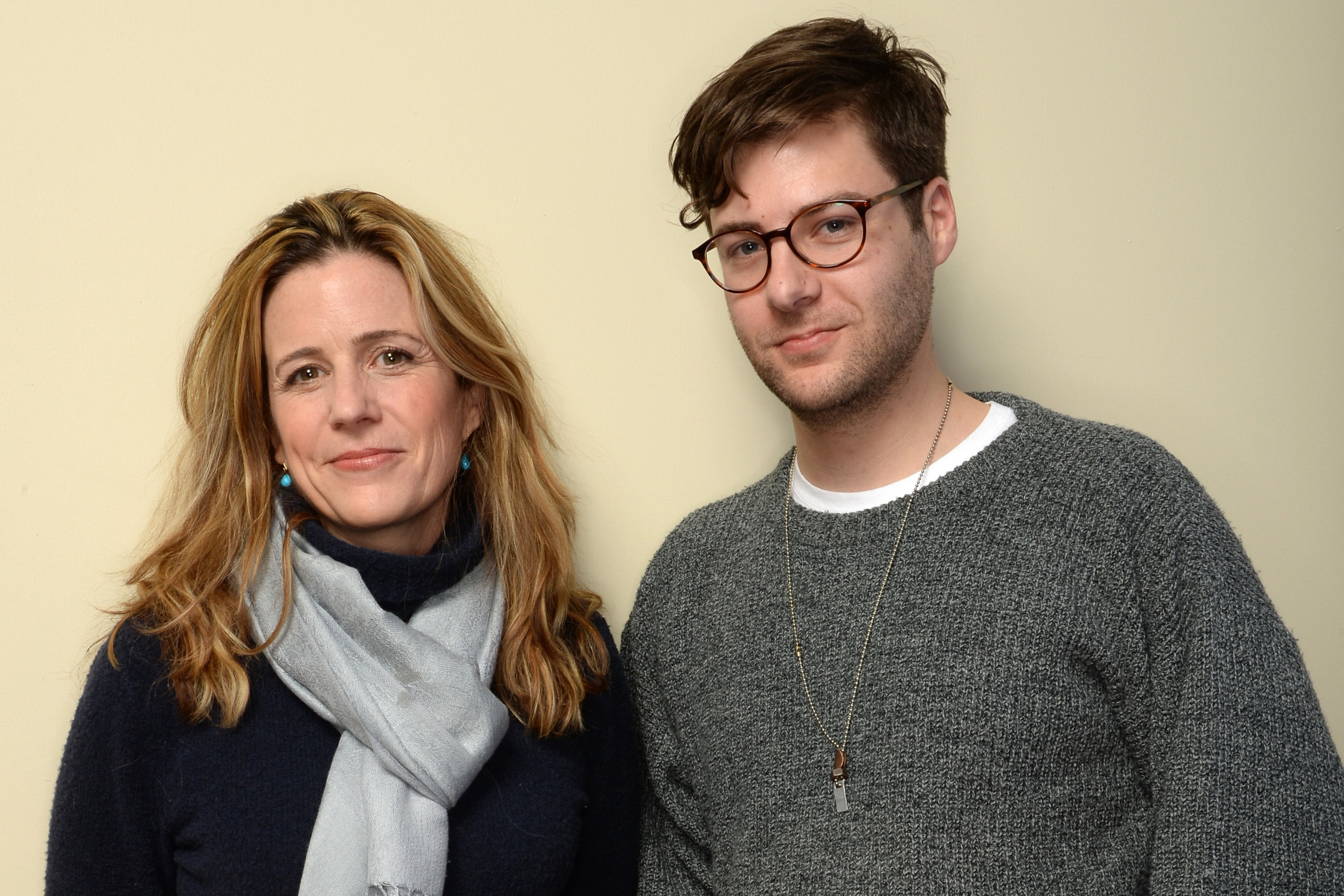
CEFF’s version of the Proust questionnaire
1. What is your favorite movie theater and why?
Andrew Droz Palermo: Ragtag Cinema in Columbia, Missouri. One of the first places I started watching European films, which were not available in my nearby hometown.
Tracy Droz Tragos: The first theatre that came to mind was the one that got me into movies, I could walk to it from my house, it was in Berkeley, CA, but it’s not there anymore. I can’t remember how it was called, it was a little hole in the wall, a small theater next to a Chinese theatre, smelling of Chinese food where I would see all those amazing movies.
2. Your favorite movie rant.
ADP: The rants in Network by Sidney Lumet.
TDT: Shirley MacLaine in Terms Of Endearment.
3. The death scene you will never forget.
TDT: I just saw Atonement in the airplane and I cried, but maybe that was just the jet lag. As a kid, I remember Gallipoli by Peter Weir, when all these guys come out of the trench and they’re about to face their death.
ADP: I don’t really like the movie but I saw Saving Private Ryan in a theater full of veterans and the beach scene felt so real. I remember looking through the audience all these white-haired men just weeping.
4. The first movie poster that you hung on your walls.
ADP: My sister had an amazing poster Reservoir Dogs that I admired from afar.
TDT: I didn’t really have posters. I had books about Meryl Streep but I din’t have posters of movies.
5. What movie character do you identify with the most?
TDT: Lately I’ve been feeling like the main character in Actress, the documentary by Robert Greene.
ADP: This is maybe more me as a boy, but I really identify with the boy in Kes by Ken Loach.
6. Which look to camera struck you the most?
ADP: Most infamously, Michael Haneke in Funny Games. They do so much more than looking at you, they’re rewinding the movie and replaying a moment back.
TDT: I think of documentaries. The films that struck me the most would be Alan Berliner’s Nobody’s Business and Errol Morris’ Fog Of War and The Unknown Known.
7. What movie made you travel the most?
TDT: The early Vietnam war films. So The Deer Hunter by Michael Cimino.
ADP: The World War II film, Come And See by Elem Klimov. I saw it really young and I was shocked by it.
8. If you had to live in a film, you would choose…
ADP: I’m gonna choose Xanadu [laughs].
TDT: I’m trying to think of true love, boy loves girl, they walk onto the sunset… Because in the films that I love it doesn’t usually happen that way. I was really happy with where Ada ended up at the end of The Piano but then I would have to have my fingers cut off and still go through all the stuff that they go through. Well I’ll go with When Harry Met Sally, all fluffy and inconsequential but they do get each other at the end. Or the recent Linklater film, Before Midnight, they’re in Greece having wonderful meals. I like that.
9. The movie that scared you the most.
ADP: I saw The Exorcist when I was too young to see it. It continues to be one of the scariest movies ever.
TDT: Rosemary’s Baby. Films with children and the Devil are really scary.
10. The movie that made you laugh the most.
ADP: I really like Superbad by Greg Mottola, I think it’s funny and not without style. And all the satire in Robocop makes me laugh a lot.
TDT: I have laughed a lot in Moonstruck by Norman Jewison. And I do think that Knocked Up by Judd Apatow is really funny.
Portraits of Tracy Droz Tragos & Andrew Droz Palermo
Tracy Droz Tragos and Andrew Droz Palermo are cousins, as hinted by their common last name. Their love for cinema manifested early on, although in different ways. Palermo always knew he wanted to work in film, spending endless summer holidays in movie theaters. Tragos found her calling in the movies about the Vietnam War that came out in the 70s. Her father had died in battle and through those she found a way to connect with him. She studied Writing at Northwestern University and Screenwriting at USC. Palermo studied Fine Art at Columbia College, in Chicago, fearing film was not a viable option, only to fall back into the world of motion pictures after graduation.
Rich Hill, a documentary about three young boys living in the eponymous town, is their first collaboration as co-directors. If Rich Hill is Palermo’s first time directing a feature-length, it marks the second time Tragos takes the director’s seat, having previously made a documentary about her father. “A lot of people from Rich Hill saw it and they liked it, they had seen me work making it, so it helped when we asked them to trust us and let us into their lives”. The film indeed transpires honesty: the three leads and their families open up on camera, sharing their darkest secrets and most intimate moments. Despite this extreme close look, it never feels exploitive or salacious.
When asked about their inspiration for making it, they cite the time they spent there as kids. “Our grandma was a school teacher here and our grandfather delivered mail to everyone in the community” explains Tragos. “We knew the families there were struggling, we knew that poverty was a backdrop, and we wanted to give a closer look.” They made a decision to focus on adolescents, because they are harder to dismiss by the audience. “Grown ups get easily judged, people think they’re lazy, that they made the wrong choices, that they don’t work hard enough”. The fact that the film centers around the lives of three boys, and features girls as secondary characters (mother figures and sisters mostly) was a concern, especially for Tragos. “As a female filmmaker I did a lot of soul-searching about this decision but ultimately it was a natural development. We actively sought girls but it didn’t really work out, and forcing a character on the film would be falling prey to a trap most documentaries fail to avoid which is trying to cover everything.”
The shooting lasted 18 months and over that time the filmmakers collected more than 400 hours of film that had to be reduced to a two hour feature. “It’s interesting how we almost completely don’t use any of the footage of the first 20 hours. Time was a huge factor in building the trust needed” says Palermo. The shooting brought the filmmakers close to fine ethical lines: on one occasion they ended up calling social services, fearing that one of their character’s sister would commit suicide. They were also the witness of the brave struggle of Elizabeth, the mother of one of the boys, with depression. She died a few days before the film premiered and won at Sundance. One of Palermo’s fondest memories is a scene that did not make the final cut, where she dyes her son’s hair and they ended up playing a game of grab-ass. “Andrew’s hair proved to be a continuity nightmare, he kept on changing it” Palermo remembers.
The documentary has a very polished look and feel, a testament to the quality of Palermo’s work as a cinematographer. When asked what are their influences, films that come up include Only The Young by Elizabeth Mims and Jason Tippet, Bombay Beach by Alma Har’el, Hoop Dreams by Steve James, Ballast by Lance Hammer or George Washington by David Gordon Green. Terrence Malick’s Tree Of Life was a visual shock for both directors, who both cite it as an inspiration, for its treatment of small moments and simple daily gestures.
Today Tracy Droz Tragos is working on two documentary projects, one about girls education and the other about Sarah, a teenager mother she met while making Rich Hill. She also started writing again. Andrew Droz Palermo will be directing his next movie this summer in North Carolina.














